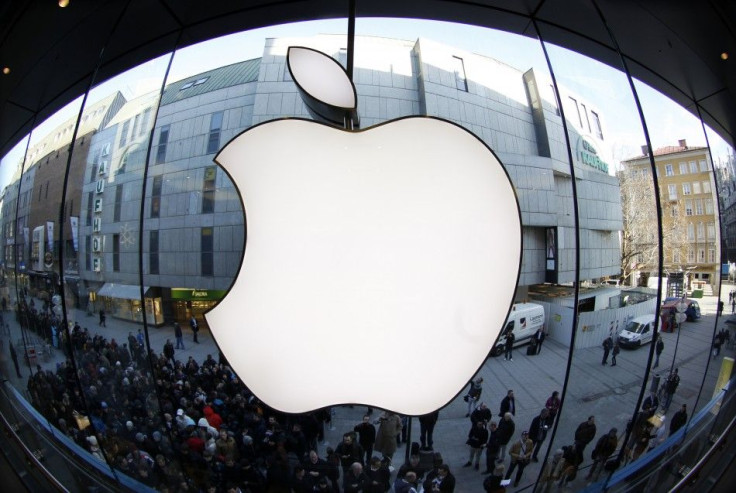Apple’s Dividend: Historic Landmark Or Just An Inevitability?
ANALYSIS

Apple Inc. (NASDAQ: AAPL) answered millions of shareholders' prayers Monday by establishing a dividend payment and a huge share-repurchase program.
With nearly $100 billion in cash sitting on its balance sheet, accumulated largely through massive global sales of its wildly popular iPhone, iPod and iPad product lines, shareholders and analysts were clamoring for dividends.
Apple said it will pay a dividend of $2.65 per share in its fiscal fourth quarter, which begins in July. It last paid a dividend in 1995. The company also plans to buy back $10 billion of its own shares over the next three years, starting in October.
Given that the company expects to pay out an aggregate $2.5 billion per quarter on dividends, Apple may spend up to $45 billion through the end of 2015, including the share repurchases.
We have used some of our cash to make great investments in our business through increased research and development, acquisitions, new retail store openings, strategic prepayments and capital expenditures in our supply chain, and building out our infrastructure, Apple's Chief Executive Tim Cook said in a statement.
Even with these investments, we can maintain a war chest for strategic opportunities and have plenty of cash to run our business,” added Cook.
Sean Snaith, an economics professor at the University of Central Florida, wasn't surprised by Apple's decisions.
“There had been for some time speculation on how Apple would handle the tremendous amount of cash it was sitting upon and paying a dividend and pursuing a stock buyback were always at the top of the list of possibilities,” he said.
Lawrence Glazer, managing partner at Mayflower Advisors in Boston, said Apple’s dividend was “a poorly kept secret and was not a big surprise to investors that have been fixated on their ever growing cash hoard.”
The market clearly liked the news – Apple shares jumped 2.65 percent on Monday to close above $600 per share for the first time.
“I am not surprised that Apple chose this course of action,” said Michael Yoshikami, CEO of Destination Wealth Management, in Walnut Creek, California. “Our view is that they would rather distribute cash rather than be forced to buy a company.”
Cook has said he thinks the dividend will bring in a whole new pool of investors – including, presumably, mutual funds which are typically mandated to only purchase dividend-paying equities.
Although the $2.65 per share seems quite generous, that translates into a rather modest 1.8 percent dividend yield, which is somewhat higher than the yields provided by other tech stocks, but less than the 2.1 percent average for the S&P 500 index.
“Apple is conservative,” Yoshikami noted. “I'm not surprised they are paying out so little. It’s important to note that this does not touch their foreign cash [which is subject to a hefty repatriation tax].”
Snaith indicated that the size of the dividend yield isn't out of line with other large-cap companies.
“While they could have afforded something much larger, it was more prudent to choose a dividend that they could maintain and/or grow in the future as opposed to starting large and then being forced to reduce dividends in the future,” he said.
Glazer noted that while Apple could easily have afforded to pay a higher dividend given its flush cash position, “perhaps the dividend level would have been higher if the tax treatment was not expected to rise next year. This could have been a dark cloud over management's decision.”
Keep in mind, Apple has launched the much-anticipated iPad3.
Yoshikami thinks the dividend announcement might have been a ploy to take advantage of the public's anticipation of the release of the iPad3.
“I think the timing was meant to allow iPad to dominate the news, and perhaps to capture a bit of glow from what was widely anticipated to be a positive product roll-out,” he said.
However, Snaith doesn't think the dividend announcement had anything to do with exploiting a new product unveiling.
“The timing I suspect was less a function of a new product release, which happens with regularity, as much as it was a function of the huge cash balances,” he said.
Meanwhile, while Apple is likely to gradually increase the dividend rates, the company probably won't make any big acquisitions with its mountain of cash.
“They are too conservative a company to be interested in taking on integration risk,” Yoshikami said.
Snaith is also skeptical that Apple will make any significant acquisitions.
“Apple's brand is so unique that horizontally acquiring a 'mere mortal' company may be viewed negatively, so vertical movement seems most likely but even here Apple has played this hand differently,” he stated.
Another issue is how investors won't view Apple – typically, when a company starts paying dividends, it suggests that management has conceded that growth rates will diminish. Apple, however, is unlike any other company – its growth is likely to continue soaring.
Still, given its sheer size, maintaining high growth will be challenging.
“The ability of Apple to continually outdo itself with each new product upgrade or release will eventually run out and as competitors continually challenge them, eventually Apple will have some disappointments,” Snaith said.
“Whether it will happen on iPhone 5 or 6 or some other product remains to be seen, but it will happen at some point.”
Now that Apple has said it plans to pay a dividend, the spotlight will likely now fall on Google Inc. (NASDAQ: GOOG), the only other $100-billion-plus tech company that doesn’t pay a dividend.
“I don’t expect a dividend from Google,” Yoshikami noted. “Their cash position is not as great and they are a company more comfortable with purchase other companies.”
Indeed, Google may be better suited for acquisitions than Apple, Snaith asserts, as it's a more amoebic company and has its hands in a much more diverse set of businesses than does Apple.
© Copyright IBTimes 2024. All rights reserved.











